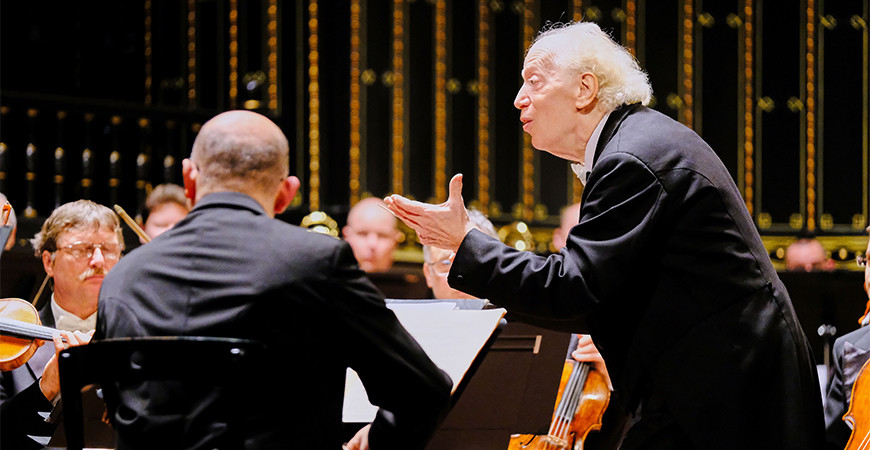
20 January 2020, 19.30-22.00
Grand Hall
Danubia Orchestra Óbuda
Liszt/Britten/Saint-Saëns
Liszt: Les Préludes – symphonic poem
Britten: Serenade
Saint-Saëns: Symphony No. 3 in C minor, Op. 78 (‘Organ’)
Tibor Szappanos (tenor), Endre Tekula (horn), Ágoston Tóka (organ)
Danubia Orchestra Óbuda
Conductor: János Kovács
Les Préludes is a bit like the neighbour from our childhood: on returning home as an adult, we force a smile and shake the hand of ‘Uncle Fred’, laugh at his hundred-year-old jokes, and then heave a sigh of relief when the visit is over, vowing never to repeat the experience. Because we watched him throughout our childhood, we know by heart what he did, what he ate andhow he bent down to pick up the mail. But what if Uncle Fred turns out to be the greatest poet of our age? Or perhaps he was a noted charmer who fled the rage of a thousand beautiful women to the next door flat forty years ago? Or maybe he’s the inventor of a time machine? Nor can we turn our back on works that have been played to death, for there is a very good reason they are played to death; the fact is that in general, masterpieces also manage to survive this. Britten’s Serenade is the other extreme: it is virtually never performed, even though it, too, is a masterpiece, the most moving confession for horn and tenor ever written. The brilliant ‘Organ’ symphony performed as the final act in the programme is ideally suited to allow us to celebrate the stunning new instrument of the Liszt Academy.
Tickets:
HUF 2 500, 3 200, 3 800, 4700


